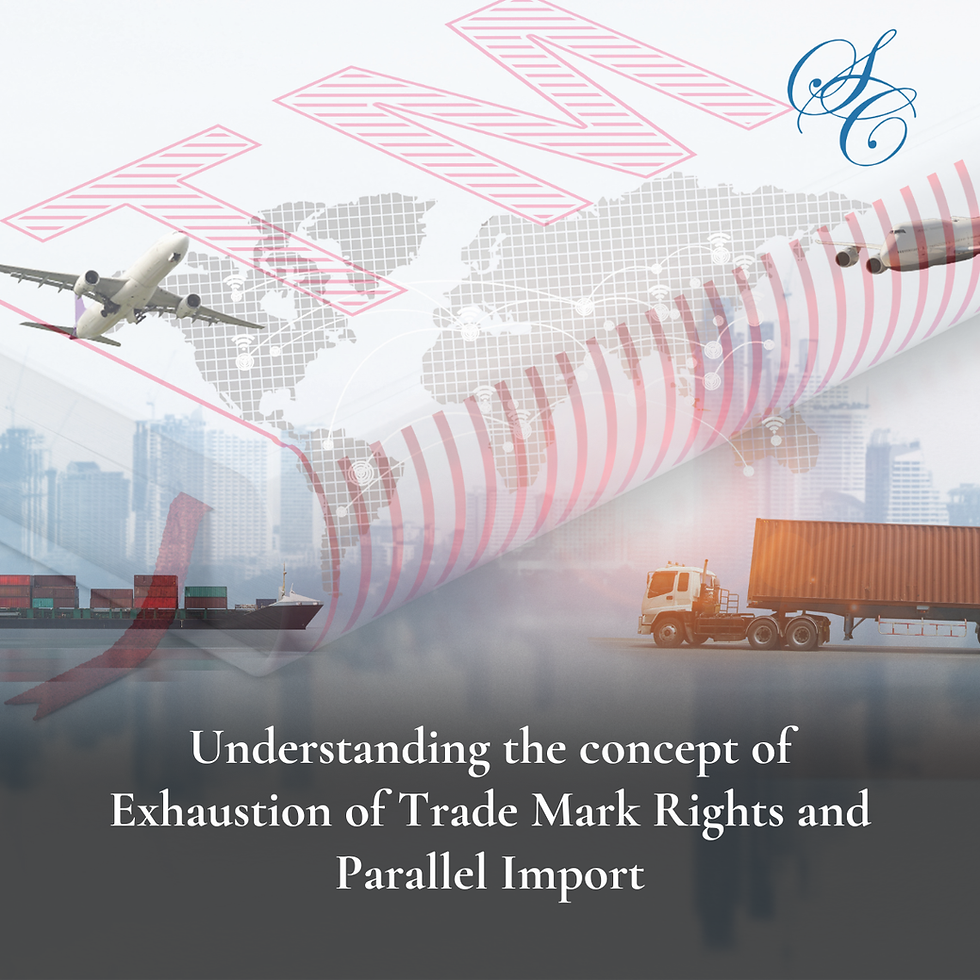What to Expect from the Indian Supreme Court’s Much-Anticipated Ruling on Parallel Imports?
- Sarwajeet Singh
- Jul 12, 2018
- 2 min read
In 2012, the Delhi High Court recognized that actions against parallel importers were maintainable, albeit in a limited sense i.e. the trademark owner could restrict circulation of parallel imports, if such circulation could be shown to have cause damage/ loss of goodwill [See: Samsung v. Kapil Wadhwa, 194 (2012) DLT 23]. Inevitably, an appeal against the decision is now being considered by the Supreme Court.
This post discusses the extent to which the Indian trademark statute protects right holders against parallel importers, and the issues the Supreme court’s upcoming ruling is expected to address.
In India, the floodgates were opened after the decision in Samsung by a single judge of the Delhi High Court. In Samsung, the complainant filed a suit to restrain the defendant from selling its printers (procured upon import) on the grounds (a) that the imported products were not meant for Indian markets and have “marked changes”; and (b) that such sales have damaged their reputation. On the other hand, the defendant mounted a defense by arguing that the Indian trademark statute supported the principle of international exhaustion. The Court disagreed with the Defendant’s interpretation because it felt that the statute, in fact, entitles a complainant to limit domestic circulation on grounds of loss of goodwill. Accordingly, the court restrained the defendant from “importing, exporting and dealing” with goods nearing the complainant’s marks.
The single judge’s decision was, subsequently, appealed before a two-judge bench of the High Court. The two-judge bench disagreed with the single judge’s reasoning that acquisition of goods through consent of the lawful proprietor, alone, is lawful. Instead, the appellate court ruled that “lawful” parallel imports were theoretically possible under the trademark statute (and would not constitute infringement). Interestingly, the court agreed with the defendant’s argument that India ascribes to the principle of international exhaustion, and that right owners could only restrain parallel imports facilitated unlawfully. Implying that it could not consider the defendant’s parallel imports unlawful under the trademark statute at the pre-trail stages, the court directed the defendants to declare the differences in products to consumers before resuming their trade.
The division bench decision has also been appealed to the Indian Supreme Court. While the Supreme court contemplates the final say, it would be worthwhile to examine how courts have ruled on the issue pending a ruling by the Supreme Court. In Western Digital v Ashish Kumar [2016 (68) PTC 554 (Del)], the complainant alleged that the defendant (an importer of computer peripherals) was importing its goods without authorization (although it was unable to verify that the goods were, indeed, parallel imports). The complainant claimed that the defendant’s activities were causing a loss of goodwill because the defendant’s sales were not supported by the complainant’s after-sales services. However, the parties settled on the basis that the defendant would (a) represent to/ inform consumers that their goods are parallel imports and not supported by the complainant’s after-sales services; and (b) provide after-sale services at par with the complainant’s. The court observed this to be a lawful arrangement and decreed the suit in these terms.




Comments